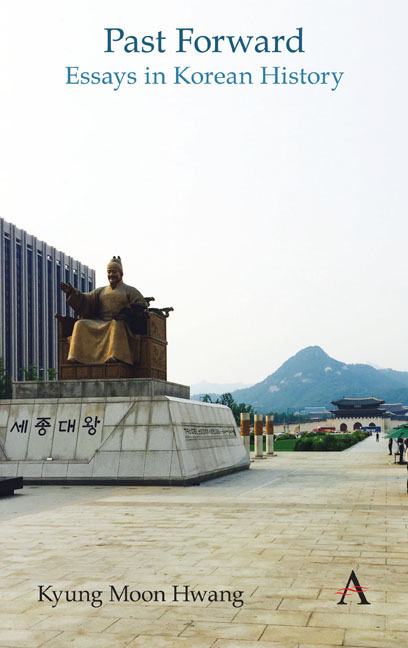Book contents
- Frontmatter
- Contents
- List of Figures
- Foreword
- Chronologies of Korean History
- Themes
- Acknowledgments
- Note on Romanization and Spelling
- Part I Circulating History
- Part II Durable Traditions
- Part III Ancient Remains
- Part IV Dynastic Depths
- Part V Modern Origins
- Part VI Challenges of Nationhood
- Part VII History Makers
- Part VIII External Presences
- Part IX Trials of Modernization
- Part X Gripped by the Past
- Index
Foreword
- Frontmatter
- Contents
- List of Figures
- Foreword
- Chronologies of Korean History
- Themes
- Acknowledgments
- Note on Romanization and Spelling
- Part I Circulating History
- Part II Durable Traditions
- Part III Ancient Remains
- Part IV Dynastic Depths
- Part V Modern Origins
- Part VI Challenges of Nationhood
- Part VII History Makers
- Part VIII External Presences
- Part IX Trials of Modernization
- Part X Gripped by the Past
- Index
Summary
How does Korean history connect the past to the present? This question runs through the current collection of short essays, which are adapted from a dedicated newspaper column, “Korean Historical Sense,” that I wrote for The Korea Times of Seoul from 2014 to 2017.
As a historian I fully recognize the past as valuable in itself, without necessarily a connection to today. But it was not my charge in this column just to illuminate interesting features of Korean history, but rather to consider how history informs a range of current concerns, from national identity to the overlaps between Korea and other cultures. The universalities, then, as well as the particularities of Koreans’ historical experience encourage thinking about the impact of the country's past, and especially about the perception of that past, today.
Therefore, a focus on the development of historical understanding, or in other words, on the history of historical views, serves as this book's unifying theme. It seeks to gauge the constant dialogue between Korea's history, from its beginnings to the most recent developments, and Korea's present—an exercise that entails not only considering how the past informs the present, but just as importantly, how the present affects the past. In such a dynamic, then, the present moves backward as much as the past moves forward.
And because this was a newspaper column, I often attempted to let a current concern trigger the historical topic to explore. Some of these original references have been removed in this volume so that it can function as a standalone collection of essays, but it will be clear to the reader that many themes, from politics to culture and international relations, are covered. But all of these essays are undergirded by the core idea that the elasticity of history stretches to transcend barriers in time as well as place.
The essays are divided into ten thematic Parts that all illustrate this general idea. The sections do not appear in any particular order, although the essays within each part are presented somewhat chronologically. Readers who wish to place each essay in the flow of major periods and events are encouraged to consult the chronological and thematic tables of contents at the beginning of the book.
- Type
- Chapter
- Information
- Past ForwardEssays in Korean History, pp. xi - xiiPublisher: Anthem PressPrint publication year: 2019

